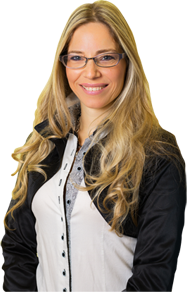If you seek an opportunity to come and study in Serbia, here are some tips that might help you with all the formal procedures regarding applying to university and applying for a student visa and temporary residence permits. Here we will give you some basic information regarding studying opportunities in Serbia:
There are two types of studies in the Serbian system of higher education:
- Academic studies, organized mainly at Universities;
- Applied studies, organized either at Colleges of Applied Studies or at Universities.
Serbia joined the Bologna Process in 2003 and thus initiated a gradual reform process, which received its legal support in 2005 by the adoption of a new Law on Higher Education. This law formally introduced the European Credit Transfer System, a three-cycle system of study, and the diploma supplement. This reform process lasted until 2007 and from then on all new students’ study under the new reformed study programs.
Academic studies
The three-cycle system of academic studies includes:
- Bachelor studies, which usually last four years with 240 ECTS, although three-year/180 ECTS Bachelor programs are also available;
- Master studies lasting one to two years with 60 to 120 ECTS;
- Doctoral studies (Ph.D.) with a minimum of three years of study or 180 ECTS.
Of course, some exception can be found like those in the field of medical science studies, like studies of medicine, dentistry and veterinary medicine studies, that are organized through integrated studies that last six years and must carry a minimum of 360 ECTS. Additionally, integrated pharmacy studies with 300 ECTS have been introduced.
Applied studies
The two-cycle applied (vocational) studies consist of:
- Bachelor applied studies, which last three years and have 180 ECTS;
- Specialist applied studies, which carry 60 ECTS and last one year;
- Master applied studies, which last two years and carry 120 ECTS.
All higher education institutions must be accredited in order to obtain a license issued by the Ministry of Education, Science, and Technological Development. Private higher education institutions (not founded by the state) have the same status as public ones.
The principal language of instruction is Serbian for all educational levels. There are also study programs which are accredited in foreign languages, mostly in English, and in many Universities and Colleges, there are additional possibilities for foreign exchange students, such as organizing consultations with professors in English, etc.
At elementary and secondary levels, other languages of instruction include Albanian, Bulgarian, Croatian, Hungarian, Romanian, Russian and Slovak.
There are around 150 study programs at all educational levels that are accredited in English or other foreign languages that are available from the academic year 2018/2019.
Studying in the Serbian language can also be interesting for international students, as well. This significantly broadens the possibilities regarding the number of study fields and programs available. Besides, if you want to immerse yourself into the experience of living and studying in Serbia, it is always recommended to learn at least some Serbian.
Studies of Serbian residents at public institutions can either be financed by the state or by the students pay tuition for their studies. Students who study at private higher education institutions pay fees as determined by the higher education institution.
In some cases, there is a difference between the amounts paid by domestic and foreign students regarding tuition fees.
Tuition fee is determined by the institution and usually ranges from 1.000,00 EUR to 5.000,00 EUR per year.
For more information regarding studying in Serbia or how to acquire temporary residence permit as a student, feel free to contact us.



